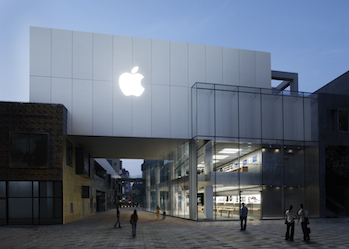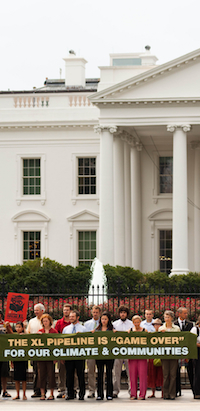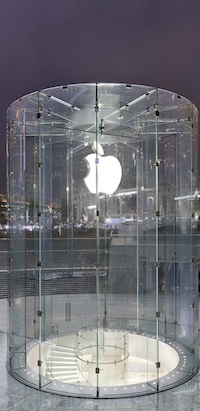
 Tech giant Apple is trying to get to the bottom of allegations that five of its suppliers in China are polluting the country's environment.
Tech giant Apple is trying to get to the bottom of allegations that five of its suppliers in China are polluting the country's environment.
The world's most valuable company agreed to discuss the concerns after a group of Chinese nongovernmental organizations called out its practices in a report released in early September. Among the claims: water polluted by heavy metals, degraded health in factory towns, and insufficient transparency by the electronics manufacturer.
The supply chain is the biggest potential pain point in the world of corporate social responsibility. It's where every company has begun — or needs to start — focusing more effort. Whether increasing efficiency and reducing waste among suppliers (and keeping costs down, to boot) or preventing potentially serious black eyes to the reputation like we're seeing here, there are innumerable reasons for companies to take supply chain transparency seriously. Issues could affect almost any company, but Apple's glamorous brand and incredible financial resources make it a prime target for this kind of campaign — much like Nike in the 1990s.
How will Apple respond? Its MO has historically been to step up its communications game in response to green campaigns. Case in point: Steve Jobs' unprecedented open letter to the public in 2007 after an aggressive Greenpeace campaign on Apple's e-waste and toxic chemicals practices. Since then, green has been a regular (if brief) feature of every new Apple product launch.
People power in China: This looks like the highest-profile effort from the Chinese people — as consumers, rather than as producers — to get greater environmental and social responsibility from a global brand. A successful push from the massive Chinese market for greener and healthier products and processes would be a potentially huge lever for change there.
Read more
In the world of gadgets, secrecy is king, so how can a company maintain that top-secret edge and still clearly show its operations and their impacts? That's not an easy question to answer. In Apple's case, the company was called out by Chinese environmental groups not just for the environmental impacts of its practices but also for not providing them with information about their suppliers. Apple has now agreed to sit down with the NGOs, and I'd love to know if they come to some agreement that enables them to achieve transparency in one area and secrecy in another.
Don't blame China: Many U.S. analysts have had a sort of knee-jerk, "well that's China for you," response that holds the suppliers and the Chinese government more accountable than the American companies doing business there. This line of defense is disingenuous: That same government and those same suppliers have helped American companies achieve record profits.
Changing of the guard: I will be curious to watch newly appointed Apple CEO Tim Cook handle this issue. Formerly the company's COO, Cook is widely credited with setting up its supply chain. He's routinely praised for helping Apple to achieve dominance through processes enabling the company to produce new technology more quickly than competitors; part of that is the company's famed secrecy.
Read more
| Tweet This Page |










